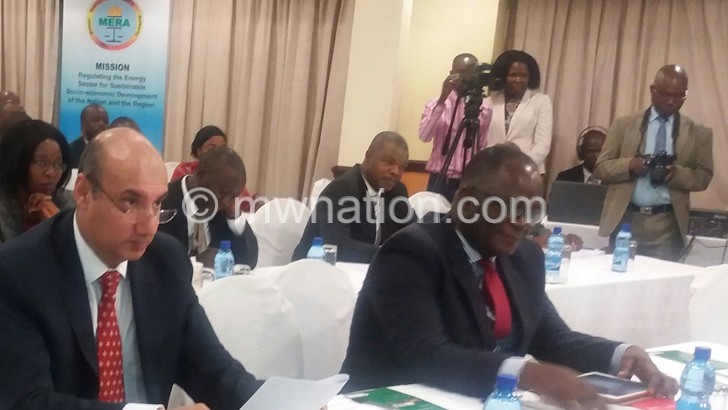World bank tips Escom on viable business model
The World Bank has advised Electricity Supply Corporation of Malawi (Escom) to generate positive decisive action which will enhance investor confidence to move the energy sector towards a path to financial recovery.
In a presentation during the electricity tariff stakeholder meeting convened on Monday in Blantyre, the bank’s senior financial analyst responsible for energy and extractives global practice Dhruva Sahai said the power utility operations need to be underpinned by a legal and regulatory framework that offers certainty and predictability with clear and transparent rules for market entry.

He said: “Key concerns among investors was the lead time it takes to develop projects. There is thus need to shorten lead time for negotiating commercial agreements. Other than this, there is also need for better coordination among stakeholders for document review and decision making.
“There should also be increased capacity to engage the private sector in terms of risk identification and sharing between public and private sector.”
Sahai noted that Escom’s current financial condition is sub-optimal due to a number of factors, including below cost-recovery tariffs, high receivables due to non-payment by large customers, combined with lower power availability during the dry season negatively impacting revenues.
He said government needs to weigh its support to Escom against competing expenditure priorities.
The performance of the parastatal in 2016/17 fiscal year declined a percent to K6 billion from K7.9 billion.
A few months ago, Escom asked for a K58 billion bailout from Treasury to enable it to provide reliable electricity, but Treasury rejected the proposal arguing that doing so could collapse the economy.
In June this year, Escom board chairperson Thom Mpinganjira admitted abuse of procurement procedures that has cost the parastatal billions of kwacha.
Last week, revelations of theft of 3.8 million litres of diesel valued at K1.9 billion meant for the running of diesel-powered generators to boost power production and supply came to the fore.
On Saturday last week, the company’s director of administration and human resources Dafter Namandwa quantified the losses to illegal connections to be around K1 billion monthly.
But Escom chief executive officer Allexon Chiwaya said the company is moving in the right direction to reduce inefficiencies at the parastatal, citing the adoption of the cost- reflective model that it intends to adopt.
“We did a cost of service study to determine how much it costs Escom to produce electricity as such we want to engage on a cost- reflective model because without which, investors may not come to invest in Malawi since investors
invest where there is a return,” he said.





